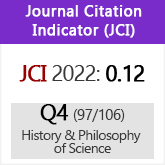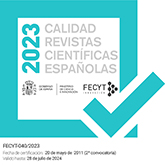Humanitarian aid in peacetime: conflicting narratives in the international Red Cross movement, 1867-1884
DOI:
https://doi.org/10.3989/asclepio.2014.04Keywords:
disasters, humanitarianism, Red Cross international movement, civil reliefAbstract
When, scarcely five years after its advent, the movement of aid societies for the relief of soldiers wounded in battle in international wars, set out to examine what should their activities be in peacetime, many debates were opened up as to the feasibility of broadening their field of action to other warlike settings and disasters. The following is an examination of how these debates developed, providing evidence that (a) the International Committee of the Red Cross (ICRC) defended its position not to incorporate civil aims into the humanitarian purposes of the Red Cross international movement until after the First World War; and (b) different national societies and committees of the Red Cross, disagreeing with this position, defended, within the framework of emergent paradigms in hygiene and public health, the care of the sick poor, and were involved as early as the 1870s and 1880s in first-aid to the sick and wounded in everyday life as well as in relief of disasters both natural and caused by famine.
Downloads
References
Ackerknecht, Edwin H. (1953), Rudolf Virchow: doctor, statesman, anthropologist. Madison, WIS, University of Wisconsin Press. [AIPSS, 1864], Annales de l'Association internationale pour le progrès des sciences sociales: Troisième session. Congrès d'Amsterdam (1865), Brussels, Bols-Wittouck / Paris, Guillaumin et Cie. [AIPSS, 1865], Annales de l'Association internationale pour le progrès des sciences sociales: Quatrième session (du 28 août au 2 septembre 1865): Congrès de Berne (1866), Brussels, Bols-Wittouck / Paris, Guillaumin & Cie.
Beaufort, François L. C. A. d'Hertault, Comte de (1870), Étude sur la Société française de secours aux blessés des armées de terre et de mer et sur la Convention de Genève, Pris, Paul duPont.
Beaufort, François. L. C. A. d'Hertault, Comte de (1875), Questions philanthropiques. Transport de blessés, hôpitaux, appareils, assistance aux mutilés pauvres, etc., Paris, Imprimerie Nationale.
Bertherand, Émile (1872), "Compte rendu des opérations de l'exercice 1871-1872", Bulletin de la Société des Hospitaliers d'Áfrique, 1 (1), pp. 5-26.
Boissier, Pierre (1985), History of the International Committee of the Red Cross. From Solferino to Tsushima, Geneva, Henry Dunant Institute. PMid:4039569
Bosc, Ernest (1871), Étude sur les hôpitaux et les ambulances, Paris, Ve. A. Morell & Cie.
Brinkmann, Wilhem (1867), Die Freiwillige Krankenpflege im Kriege. Mit besonderer beru.cksichtigung ihrer leistungen im Jahre 1866, Berlin, Enslich.
Brinkmann, Wilhem (1870), "Über vorsorgliche Massregeln zur Verhütung von Epidemieen im Kriege", Kriegerheil, 1, pp. 137-144.
De Cazenove, Léonce (1869), La guerre et l'humanité au XIXe siècle, París, Arnaud de Vresse.
Cooter, Roger (1997), "The moment of the accident: culture, militarism and modernity in late-Victorian Britain", in Roger Cooter & Bill Luckin (eds.), Accidents in history: injuries, fatalities and social relations, Amsterdam-Atlanta, Rodopi, pp. 107-157. PMid:9107499
[CGHP, 1851], "Compte rendu de Congrès Général d'Hygiene Publique de Bruxelles, session de 1852" (1852-1853), Annales d'hygiene publique et de médecine legale (Paris), 48: 443-476; 49, 204-245.
[CIACR, 1869], Compte rendu des travaux de la Conférence Internationale tenue à Berlin du 22 au 27 avril 1869 par les délégués des governements signataires de la Convention de Genève et des Sociétés et Associations de secours aux militaires blessés et malades (1869), Berlin, Imprimerie J.F. Starcke.
[CIACR, 1884], Troisième Conférence Internationale des Sociétés de la Croix-Rouge teune à Genève du 1er au 6 septembre 1884 (1885), Geneva, CICR.
[CIHSES, 1876], [1st] Congrès international d'hygiène, de sauvetage et d'économie sociale (Bruxelles, 1876) (1877), Paris, Germer Baillière; Bruxelles, Veuve Henri Manceaux, 2 vols: vol. I (Hygiène); vol. II (Sauvetage – Économie sociale).
[CIHSES, 1878], [2nd] Congrés international d'Hygiene, tenu à Paris du 1er au 10 aout 1878 (no. 10 at the series Comptes rendus sténographiques des congrès et conferences de palais du trocadéro de la Exposition Universelle) (1880), Paris, Imprimerie Nationale, 2 vols.
Demoget, A. (1871), Étude sur la construction des ambulances temporaires suivie d'un essai sur l'application des baraquements a la construction des hôpitaux civils permaments, Paris, Alf. Cerf, éditeur. [DRK, 1871], Verhandlungen des ersten Vereins-Tages der Deutschen Vereine zur Pflege im Felde verwundeter und erkrankter Krieger und der Deutschen Frauen-Vereine (1871), Berlin, Julius Sittenfeld.
Dross, Fritz (2002), "Health care provision and poor relief in Enlightenment and 19th century Prussia", in Ole Peter Grell, Andrew Cunningham and Robert Ju.tte (eds.), Health care and poor relief in 18th and 19th century Northern Europe, Aldershot, Ashgate, pp. 69-111.
Dunant, J. Henry (1863), Un souvenir de Solférino, 3rd ed., Genève, Jules-Guillaume Fick.
Durand, André (1984), History of the International Committee of the Red Cross. From Sarajevo to Hiroshima, Geneva, Henry Dunant Institute.
Gill, Rebecca (2013), Calculating Compassion: Humanity and Relief in War, Britain 1870-1914, Manchester, Manchester University Press.
Hennock, E.P. (2000), "The urban sanitary movement in England and Germany, 1838–1914, a comparison", Continuity and Change, 15(2), pp. 269-296. http://dx.doi.org/10.1017/S0268416099003550
Von Hübbenet, Anton Christian August (1871), Die Sanitäts-Verhältnisse der Russischen Verwundeten während des Krimkrieges in den Jahren 1854-1856, Berlin, A. Hirschwald.
Hutchinson, John (1996), Champions of charity. War and the rise of the Red Cross, Boulder (Co), WestViewPress.
Hutchinson, John (1997), "Civilian ambulances and lifesaving societies: the European experience, 1870-1914", in Roger Cooter & Bill Luckin (eds.), Accidents in history: injuries, fatalities and social relations, Amsterdam-Atlanta, Rodopi, pp. 158-178.
Hutchinson, John (2000), "Disasters and the International Order: Earthquakes, Humanitarians, and the Ciraolo Project", The International History Review, 22 (1), pp. 1-36. http://dx.doi.org/10.1080/07075332.2000.9640890
Jones, Marian Moser (2013), The American Red Cross from Clara Barton to the New Deal, Baltimore, The Johns Hopkins University Press.
Longmore, Thomas (1872), "On the Geneva Convention of 1864, in relation to the aid afforded by volunteer societies to sick and wounded soldiers during the Late Franco–German War, with a glance at the proper functions of National Aid-Societies, particularly the British Aid-Society, in the future", Journal of the Royal United Service Institution, 16(2), pp. 206-221.
Moynier, Gustave (1882), La Croix-Rouge : son passé et son avenir, Paris, Sandoz et Thullier.
Nelson, Sioban (2001), Say little, do much: nurses, nuns, and hospitals in the nineteenth century, Philadelphia, University of Pennsylvania Press.
Pitteloud, Jean-François (ed.) (1999), Procès-verbaux des séances du Comité international de la Croix-Rouge 17 février 1863 – 28 août 1914, Geneva, Société Henry Dunant – Comité International de la Croix-Rouge.
Porter, Dorothy (1999), Health, civilization and the state. A history of public health from ancient to mdern times, London Routledge.
Pruell, Cay-Ruediger (2010), "Virchow, Rudolf Karl", in W.F. Bynum & Helen Bynum, Dictionary of medical biography, Westport, CT-London, Greenwood Press, pp. 1272-1277.
Rosen, George (1993), A history of public health [1958], 2nd ed., Baltimore, The Johns Hopkins University Press.
Sachsse, Christoph; Tennstedt, Florian (1980), Geschichte der Armenfürsorge in Deutschland: Vom Spátmittelalter bis zu 1.Weltkrieg, Stuttgart, W. Kohlhammer. PMid:6933923
Schmidt-Ernsthausen, Maximilian (1870), Allgemeine Umrisse der culturgeschichtlichen Entwicklung des Hospitalwesens und der Krankenpflege, Gotha, E. F. Thienemann.
Schmidt-Ernsthausen, Maximilian (1874), Das Princip der Genfer Convention vom 22. August 1864 und der freiwilligen nationalen Hu.lfsorganisation fu.r den Krieg: Studie, Berlin, Mittler.
Stolberg, Michael (2002), "Health care provision and poor relief in the Electorate and Kingdom of Bavaria", in Ole Peter Grell, Andrew Cunnnigham and Robert Ju.tte (eds.), Health care and poor relief in 18th and 19th century Northern Europe, Aldershot, Ashgate, pp. 112-135.
Sudahl, Alexander (2001), Das Rote Kreuz im Königreich Württemberg, Heildelberg, Ruprecht-Karls-Universität (Institut für Geschichte der Medizin. Ph D Thesis), [online] avalaible at http://www.ub.uni-heidelberg.de/archiv/3029 (20 Jan 2014)
Tennstedt, Florian (1981), Socialgeschichte der Sozialpolitik in Deutschland, Göttingen, Vanderhoeck-Reihe.
Virchow, Rudolf Ludwig Karl (1870), "Der Krieg und die Wissenschaft", Archiv für pathologische Anatomie und Physiologie und für klinische Medizin, 51(1), 22 Sept, pp. 4-8. [English version (1870): "Professor Virchow On the war", The Medical Times and Gazette, 2, 22 Oct, pp. 484-485].
Virchow, Rudolf Ludwig Karl (1879), Gesammelte Abhandlungen aus dem Gebiete der öffentlichen Medizin und der Seuchenlehre, Berlin, A. Hirschwald, 2 vols.
Published
How to Cite
Issue
Section
License
Copyright (c) 2014 Consejo Superior de Investigaciones Científicas (CSIC)

This work is licensed under a Creative Commons Attribution 4.0 International License.
© CSIC. Manuscripts published in both the printed and online versions of this Journal are the property of Consejo Superior de Investigaciones Científicas, and quoting this source is a requirement for any partial or full reproduction.All contents of this electronic edition, except where otherwise noted, are distributed under a “Creative Commons Attribution 4.0 International” (CC BY 4.0) License. You may read here the basic information and the legal text of the license. The indication of the CC BY 4.0 License must be expressly stated in this way when necessary.
Self-archiving in repositories, personal webpages or similar, of any version other than the published by the Editor, is not allowed.















